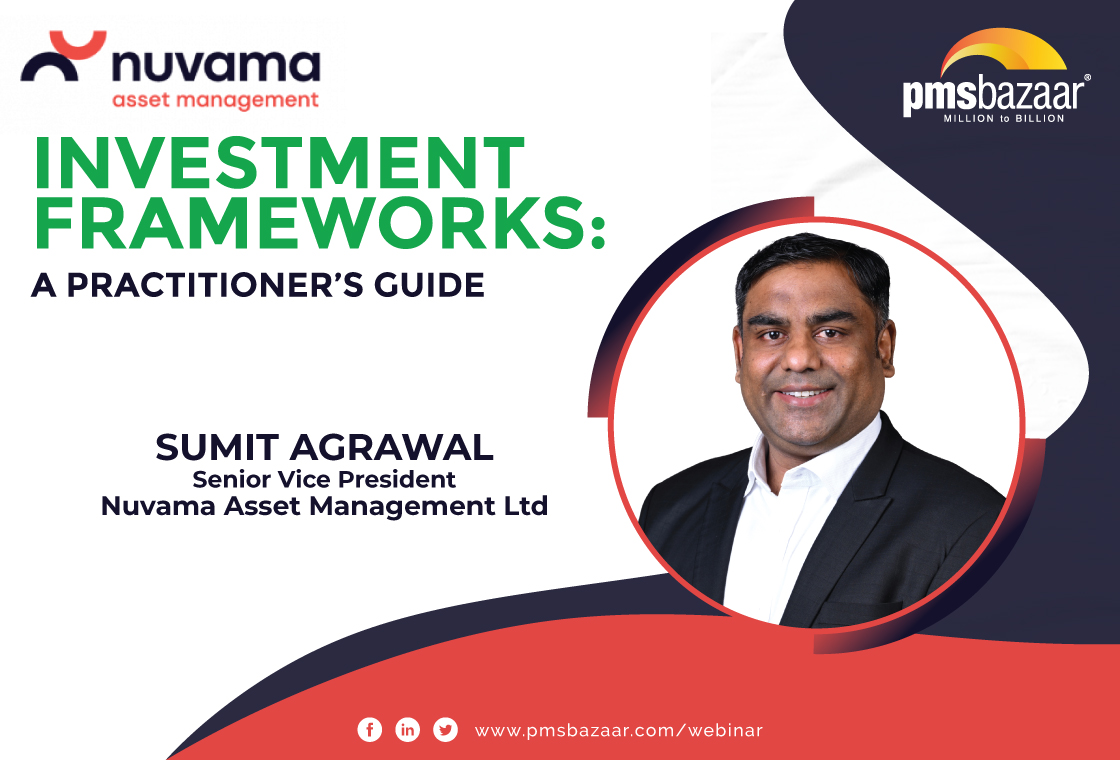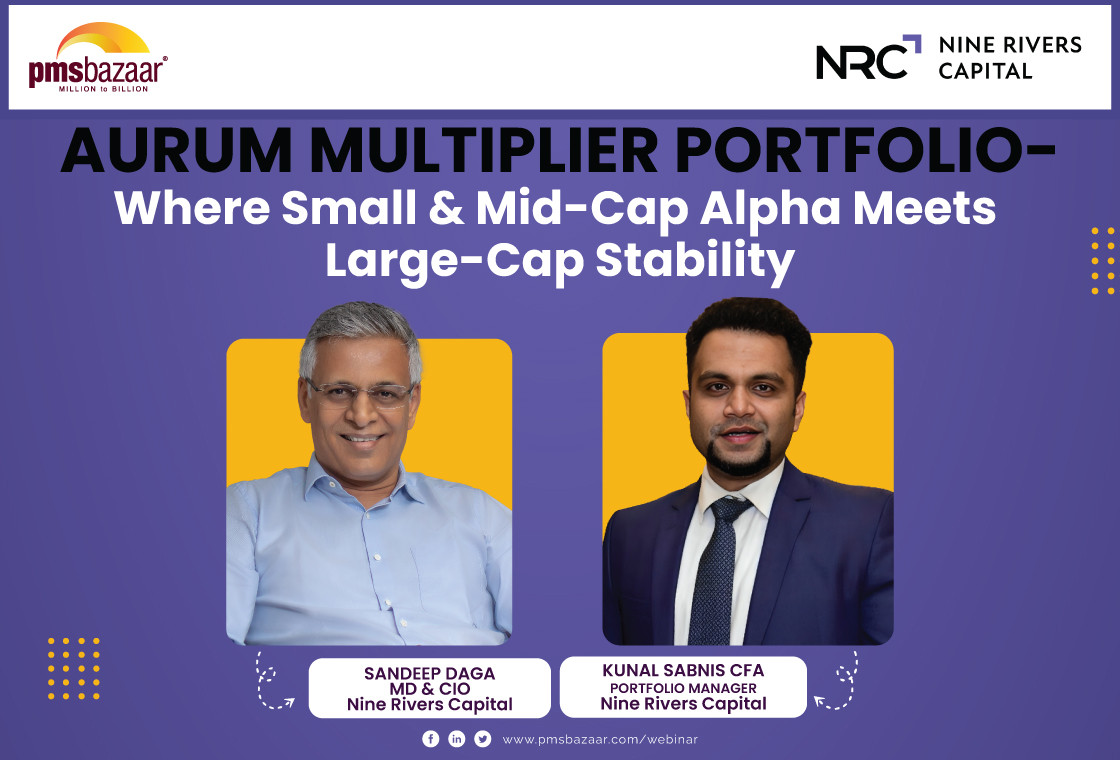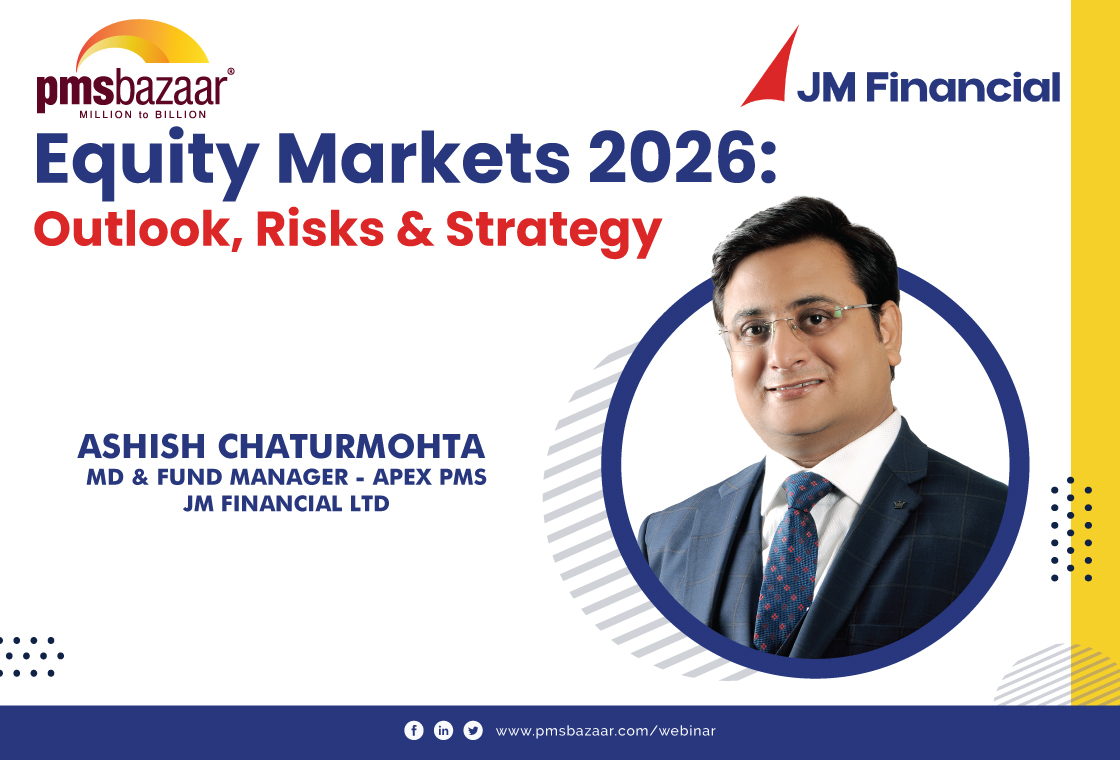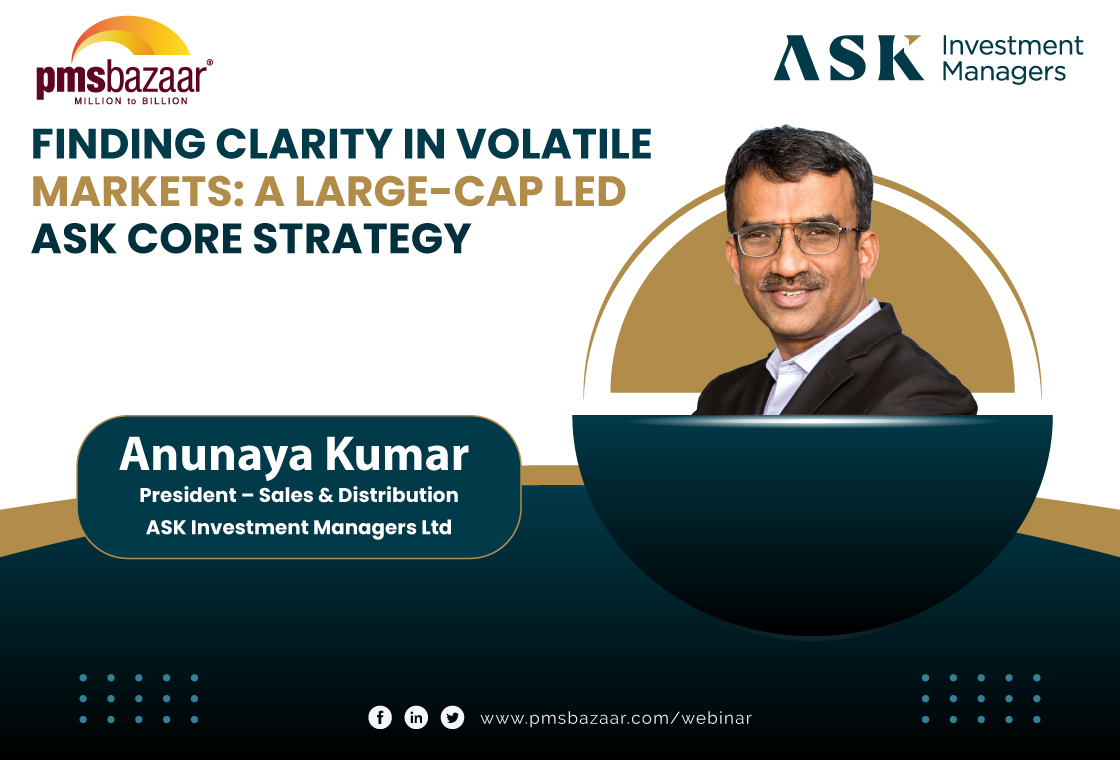A webinar hosted by PMS Bazaar, featured Rohit Rati, Principal-Investments at ICICI Prudential AMC, titled "Why Commercial Real Estate Is a Wise Choice in the Current Market?"

The webinar focused on the potential of India's real estate market, particularly commercial real estate investment opportunities.
Real Estate: A Cyclical Asset Class with Growth Potential
Rohit Rati characterised real estate as a substantial asset class, surpassing equities and debt in size and history. He emphasised the cyclical nature of real estate, influenced by the economy and capital markets, with cycles typically lasting 8-10 years. He highlighted India's strong economic performance and capital markets as positive indicators for the real estate sector.
Rati pointed to the remarkable growth in India's residential real estate sector over the past year, with developers selling over 600,000 houses, valued at over Rs 5 lakh crore. This surge has led to historically low inventory levels, indicating robust demand. Factors contributing to this growth include regulatory measures like RERA, which boosted investor confidence, and post-COVID lifestyle changes that increased demand for better-quality homes.
On the commercial real estate front, Rati argued that it offers a compelling investment opportunity, despite differing from the residential market in terms of larger ticket sizes and the need for comprehensive market understanding.
Why Invest in Commercial Real Estate Now?
According to Rati, several factors make the present an opportune time to invest in commercial real estate:
Steady Rental Income: Commercial properties provide a consistent rental income stream, appealing to investors seeking reliable returns.
High Yield Opportunities: The current market presents an opportunity to acquire high-quality assets at attractive yields.
Post-COVID Recovery: Demand for commercial spaces has rebounded strongly, with leasing activity surpassing pre-COVID levels.
Reduced Risk with Completed Properties: Investing in fully leased, completed properties minimises risks associated with approvals and construction, making it a safer investment.
India: Emerging as a Global Office Hub
Rati identified India as an emerging global office hub, attracting 55% of new global capability centers (GCCs). He attributed this trend to:
Cost-Effective Real Estate: India offers cost advantages with rental prices around ₹80-100 per square foot, at least 33% cheaper than other global markets.
Skilled Workforce: India possesses a large pool of English-speaking professionals, particularly in engineering and science, available at competitive salaries.
This combination of affordable talent and cost-effective real estate positions India as an attractive destination for multinational companies seeking to establish GCCs.
Rati also highlighted the local demand for office spaces driven by India's robust economic growth and increasing corporate profitability. This demand, coupled with the influx of GCCs, has fueled the expansion of India's Grade A office spaces, which have more than doubled in the past decade.
Favorable Investment Climate in the Commercial Real Estate Sector
Rati noted the current economic climate as ideal for investing in commercial real estate. He pointed to the sector's strong post-pandemic recovery, with leasing activities exceeding pre-COVID levels. He drew a parallel between commercial real estate investments and bonds, both primarily driven by income generation. In the current interest rate environment, commercial properties offer attractive yields, making them favourable for investors.
Rati outlined various avenues for investing in commercial real estate in India:
Direct Purchase: This traditional approach involves directly buying and managing office spaces, offering control but demanding active management.
Listed REITs: Real Estate Investment Trusts (REITs) provide a low-risk option with returns ranging from 2% to 11%.
Development Funds: Investing in under-construction properties, development funds carry higher risks but offer potentially higher returns upon completion.
Private REIT Structures: Rati recommends considering private REITs that focus on completed, leased properties, as they can potentially yield higher returns than listed REITs.
More on Private REIT Structures
Rati highlighted the potential of private REIT structures to deliver higher returns compared to listed REITs. He emphasised the importance of strategic asset selection for maximising returns, based on ICC’s experience.
Asset Selection for Optimal Returns:
Grade A Buildings with Quality Tenants: Properties with high-quality tenants in Grade A buildings generate consistent rental income and appreciate in value.
Infrastructure Development: Improvements in infrastructure, like new metro lines, can significantly boost rental rates and property values.
Tenant Stickiness and Investment: Properties with tenants committed to long-term stays and willing to invest in the property tend to perform better, adding value and maintaining quality.
Challenges to Avoid in Property Selection
Rati stressed understanding micro-market dynamics within cities. He advised investors to focus on emerging growth locations, as property values in older business districts might stagnate. Analysing market demand and supply is crucial, with cities having lower vacancy rates typically experiencing higher rental growth. He also noted the impact of global MNCs on cities like Bangalore and Hyderabad, leading to rental growth and property value appreciation despite higher vacancy rates.
Rati cautioned against potential pitfalls when selecting properties:
Under-Construction Properties: Properties under construction or facing approval risks should be avoided due to potential complications.
Low-Quality Tenants: Buildings with tenants lacking a strong financial foundation can lead to instability.
High Vacancy and Poor Maintenance: Properties with high vacancy rates or maintenance issues often experience declining rentals and property values, making them less desirable.
Expected Returns and the Impact of Interest Rates
Rati outlined potential returns from well-selected commercial properties, projecting an 8% entry yield for Grade A, fully leased buildings. He anticipated income growth to reach approximately 13% over five years due to rental escalations. Leveraging assets through lease rental discounting products can further enhance returns. Rati also pointed out the potential impact of interest rate reductions in the medium to long term, leading to yield compression, increased property values, and potentially adding 2-3% to annual returns.
As such, Rohit Rati's webinar presented a compelling case for investing in commercial real estate in India, particularly in the current market conditions. He highlighted the attractive yields, steady income generation, and potential for capital appreciation, making it a potentially lucrative opportunity for investors. If you want to know more, you can watch the full video from the link appended. That said, investors should exercise due diligence before investing in any products as this webinar and its summary is not a recommendation but has been shared for information purposes only.
Relive the entire session with video appended below:
Get access to rich data and analytics of PMS & AIF by subscribing to us. Join the 65000+ investors & experts: Subscribe NOW
Recent Blogs

January Rout, Extreme Dispersion: PMS Returns Swing From Losses to Gains
Benchmark falls deepened losses, but multi-asset and debt cushioned portfolios meaningfully

Investment Frameworks : A Practitioner’s Guide
PMS Bazaar recently organized a webinar titled “Investment Frameworks: A Practitioner’s Guide,” which featured Mr. Sumit Agrawal, Senior Vice President, Nuvama Asset Management Limited. This blog covers the important points shared in this insightful webinar.

Aurum Multiplier Portfolio - Where Small and Mid-Cap Alpha Meets Large-Cap Stability
PMS Bazaar recently organized a webinar titled “Aurum Multiplier Portfolio - Where Small and Mid-Cap Alpha Meets Large-Cap Stability,” which featured Mr. Sandeep Daga, MD& CIO, Nine Rivers Capital and Mr. Kunal Sabnis, Portfolio Manager, Nine Rivers Capital. This blog covers the important points shared in this insightful webinar.

Flat Markets, Wide Outcomes: How 484 PMS Strategies Performed in Dec 2025
December 2025 was a month where market returns stayed close to flat, with the Nifty 50 TRI at -0.28% and the BSE 500 TRI at -0.24%.

Equity Markets 2026: Outlook, Risks and Strategy
PMS Bazaar recently organized a webinar titled “Equity Markets 2026: Outlook, Risks and Strategy,” which featured Mr. Ashish Chaturmohta, MD & Fund Manager – APEX PMS, JM Financial Limited. This blog covers the important points shared in this insightful webinar.

MICRO CAPS: The Dark Horses of the Indian Equity Market
PMS Bazaar recently organized a webinar titled “MICRO CAPS: The Dark Horses of the Indian Equity Market,” which featured Mr. Rishi Agarwal and Mr. Adheesh Kabra, both Co-Founders and Fund Managers, Aarth AIF. This blog covers the important points shared in this insightful webinar.

Finding Clarity in Volatile Markets: A Large-Cap Led ASK CORE Strategy
PMS Bazaar recently organized a webinar titled “Finding Clarity in Volatile Markets: A Large-Cap Led ASK CORE Strategy,” which featured Mr.Anunaya Kumar, President – Sales and Distribution ASK Investment Managers Limited. This blog covers the important points shared in this insightful webinar.
.jpg)
Passively Active Investing — A Modern Investor’s Lens on ETF-Based PMS
PMS Bazaar recently organized a webinar titled “Passively Active Investing — A Modern Investor’s Lens on ETF-Based PMS,” which featured Mr. Karan Bhatia, Co-Founder and Co-Fund Manager , Pricebridge Honeycomb ETF PMs. This blog covers the important points shared in this insightful webinar.

